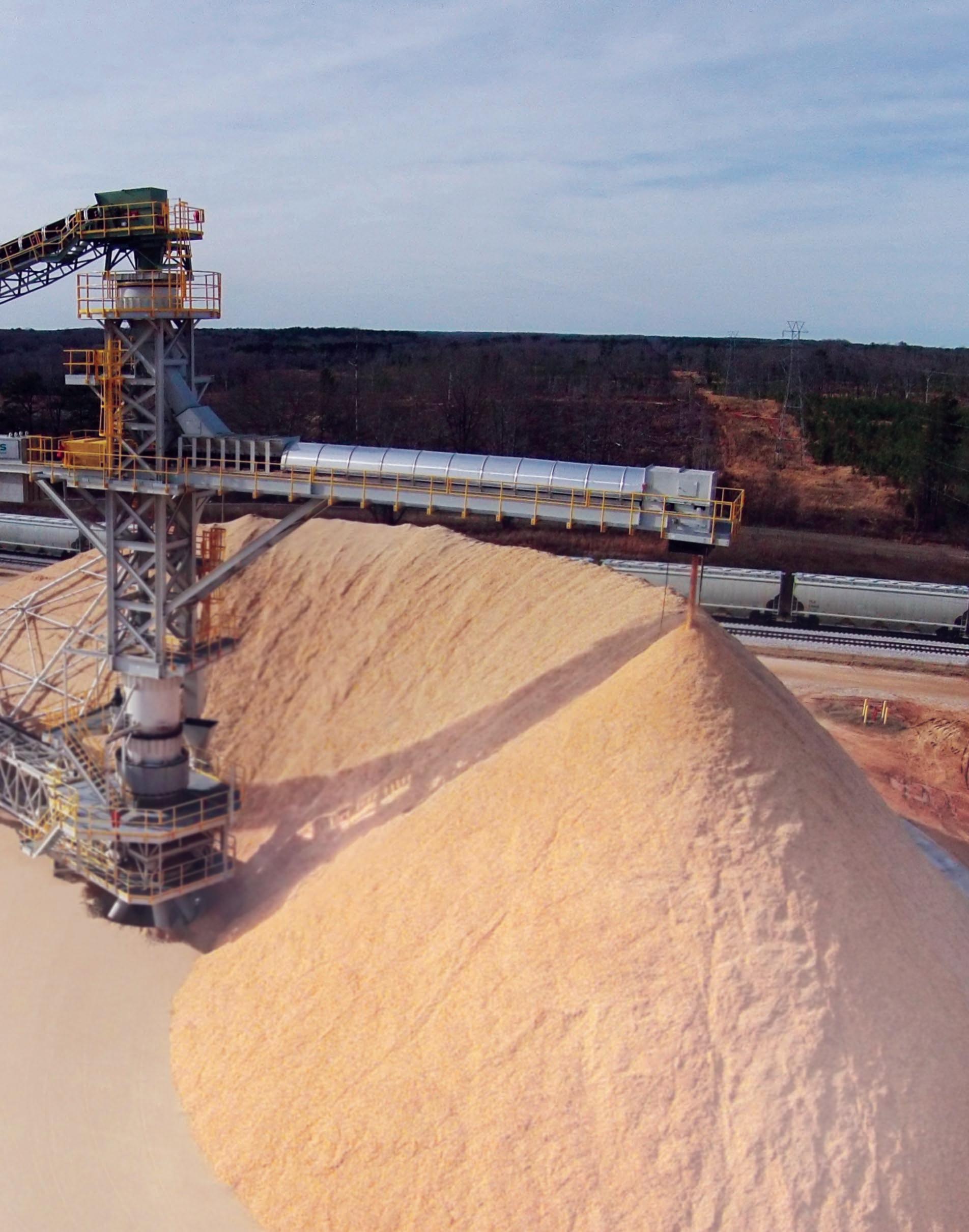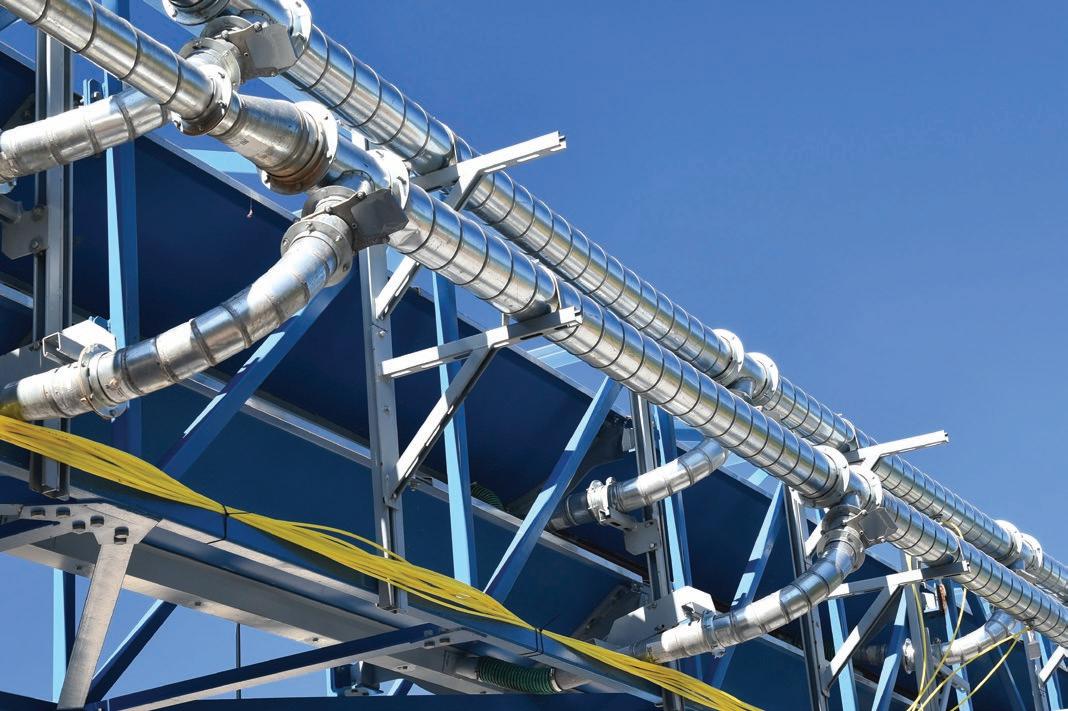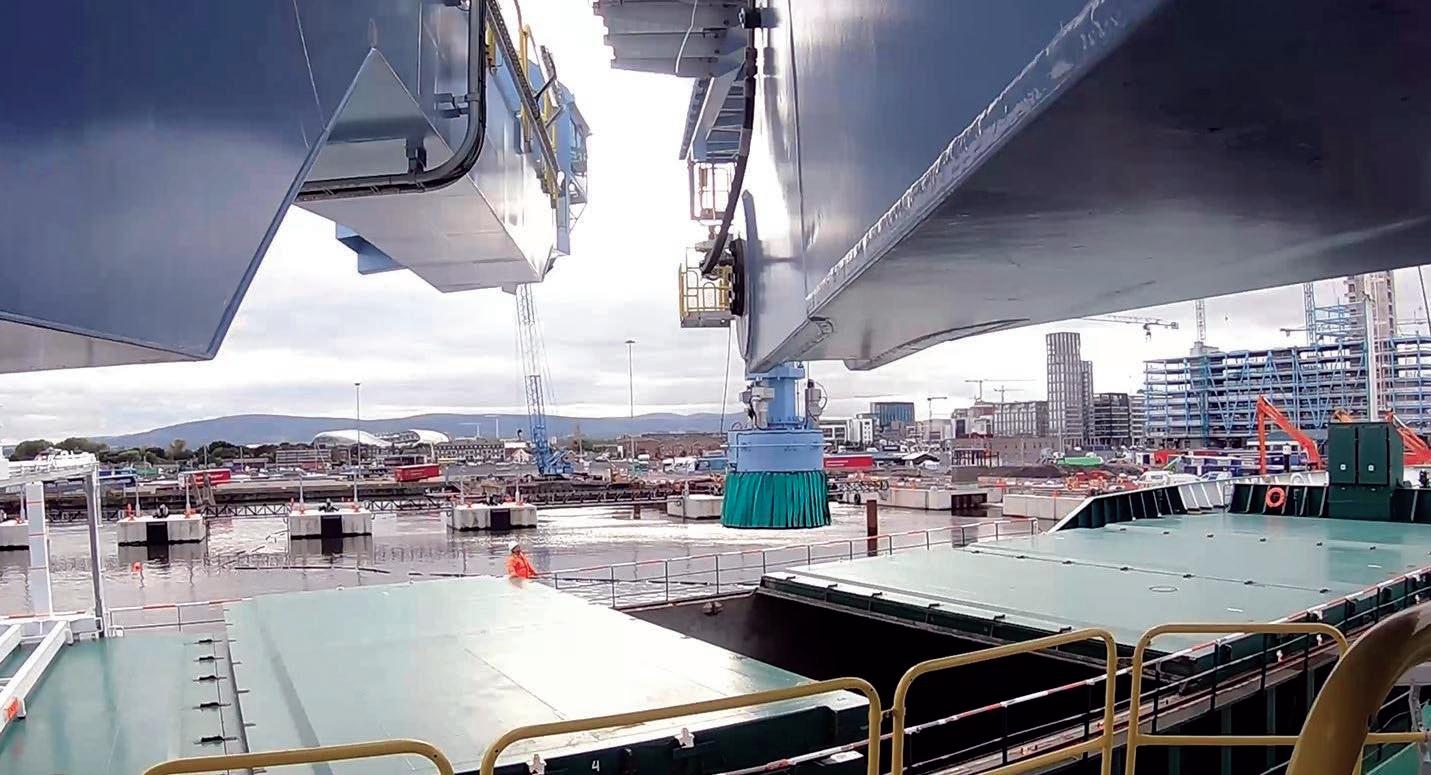
4 minute read
Think outside the box for efficiency and environmental gains
TEXT Daniel Pace PHOTOS Bruks Siwertell and Shutterstock
A recent order from Packaging Corporation of America will see Bruks Siwertell deliver a fully automated woodyard to its Wallula mill, promising dramatically reduced dust emissions and operating costs
AS ONE OF THE LARGEST manufacturers of containerboard and corrugated packaging in the United States, Packaging Corporation of America (PCA), knows a lot about operating efficiency. In 2019, its network of six containerboard mills and 93 converting operations produced about 4.2 million metric tons of containerboard and shipped about 5,520 million square meters (59.4 billion square feet) of corrugated products. Over a number of years, PCA has repeatedly turned to Bruks Siwertell for its wood-processing and handling expertise. Last year, Bruks Siwertell’s new air-cushioned conveyor technology, The Belt ConveyorTM, made its debut at PCA’s highest-volume mill, Counce, in Tennessee, and this year, the company also required something special for its Wallula mill, in Washington.
DANIEL PACE, SALES MANAGER, BRUKS SIWERTELL
The Wallula mill has two containerboard machines producing semi-chemical corrugating medium and kraft linerboard. To improve operating efficiencies and reduce environmental impact material degradation, PCA approached Bruks Siwertell looking to automate its woodyard.

Reduced operating costs
“The mill currently operates with manual equipment such as dozers,” explains Daniel Pace, Sales Manager, Bruks Siwertell. “This is very costly and degrades the material during handling. By automating the woodyard, the Wallula mill will reduce its operating costs drastically.”
Bruks Siwertell’s fully automated woodyard will comprise: two Bruks back-on truck dumpers, with covered receiving hoppers, which can each process up to six bulk trucks an hour; two circular blending bed stacker reclaimers (CBBSRs), one for handling wood chips, with a storage capacity of 35,000 tons and the other for sawdust, with a storage capacity of 20,000 tons; a sawdust metering tower; and a complete conveyor system featuring Bruks air-cushion conveying technology, The Belt Conveyor.
The Belt Conveyor uses a pressurized air-enclosure system, eliminating the need for idlers and ensuring smooth, efficient material handling

“By choosing our blending bed stacker reclaimer, Wallula will have a true first-in-first-out management of its wood chip and sawdust storage which optimizes the blend of chip sizing across the pile cross-section,” notes Pace.
Innovative collaboration
“We also had to overcome some significant engineering considerations before finalizing the equipment solution,” he continues. “These predominantly stemmed from the location of the mill, right on the Columbia River. This proximity meant that the water table, relative to the ground level where the stacker reclaimers needed to be positioned, was a challenge. PCA’s preference of the blending bed stacker reclaimer systems and their 360degree operation requires below-ground tunnels for the reclaim conveyor and emergency access.
“Typical foundation designs would have been too costly. However, through innovative collaboration between Bruks Siwertell’s mechanical and civil engineers, a solution was devised that met the customer’s operational requirements as well as the project budget,” Pace says.
Preventing dust emissions
“PCA not only wants the highest operating efficiencies for its mills, it also is heavily focused on the environment,” adds Pace. “All its mills are certified under the US Sustainable Forestry Initiative, and it looks to reduce its environmental impact at every stage in its production processes.”
Raw materials for the mill, wood chips and sawdust, are inherently dusty, so enclosing receiving and handling systems, where possible, reduces any fugitive dust emissions.
The first dust-reduction strategy is with the truck-unloading systems. As the bulk trucks are raised, the low-profile, end-pivot design of the Bruks truck dumper ensures that the truck unloads its cargo at a low elevation, approximately 2.5m above the ground, and directly into the back
DANIEL PACE, SALES MANAGER, BRUKS SIWERTELL
end of the hopper. This keeps the impact of the free-flowing material very low and results in minimal dust emissions. This is further managed with the covered receiving hoppers, which are also fitted with dust collectors, which capture fugitive dust during the initial emptying of the trucks.
The Belt Conveyor technology reduces any dust or spillage even further. The conveying system is totally contained within a pressurized air-enclosure system underneath the belt. This eliminates the need for idlers and ensures a very smooth material conveying profile, which prevents any material degradation and further dust creation.
Expert, turn-key deliveries
As the new woodyard will be constructed in the middle of the mill’s current one, with operations continuing, the project will be completed in two phases. The first phase will involve the installation of the wood chip handling system, and is planned for completion by the end of 2021. The second phase, installing the sawdust handling system, is scheduled to be complete towards the end of 2022.
Bruks Siwertell will be responsible for the mechanical installation, as well as the foundation design and installation of all its delivered equipment.
“PCA knows what it can expect from our equipment and project involvement. Our proven track record for turn-key deliveries and our leading supplier status for stacker reclaimers in North America, builds on this confidence. PCA also knows that we have the ability to support the project from our Americas office in Alpharetta, Georgia, providing the company with a 24/7 support network throughout the project and for many years to come,” concludes Pace.
All PCA mills are certified under the US Sustainable Forestry Initiative










